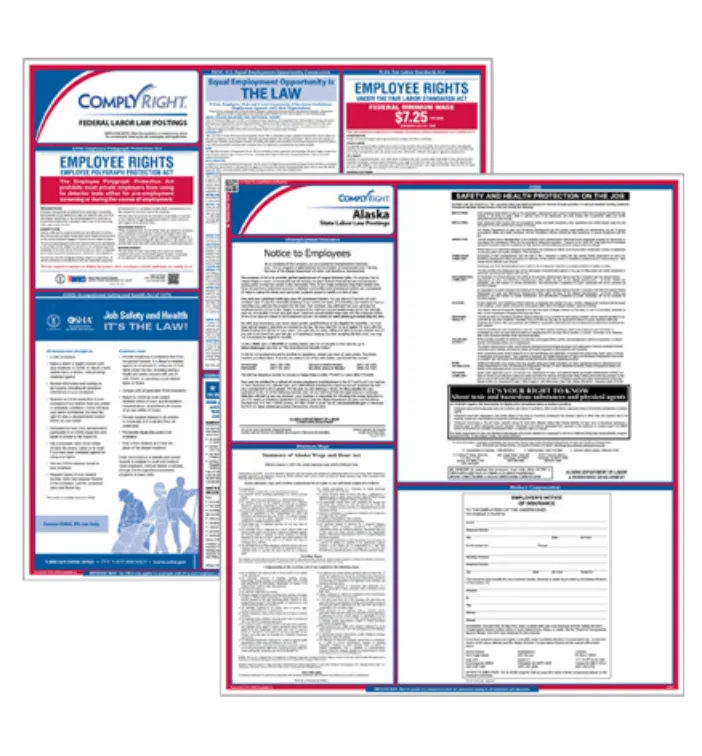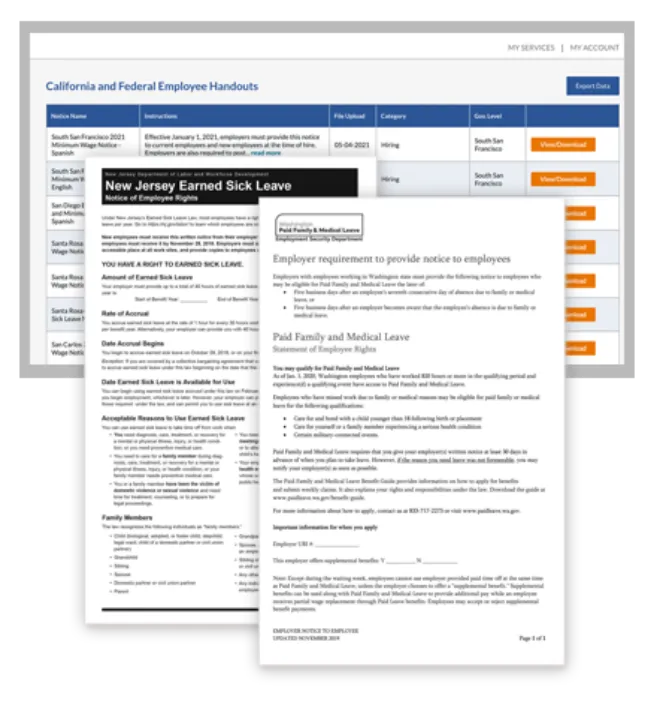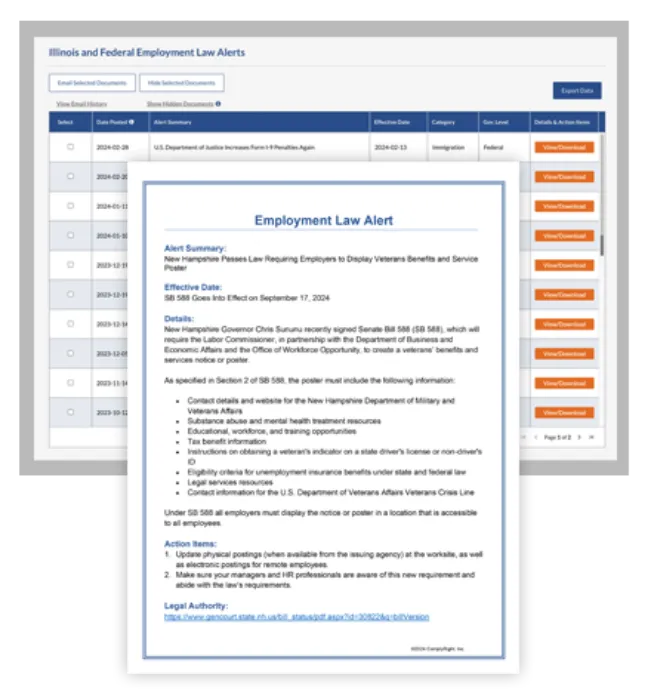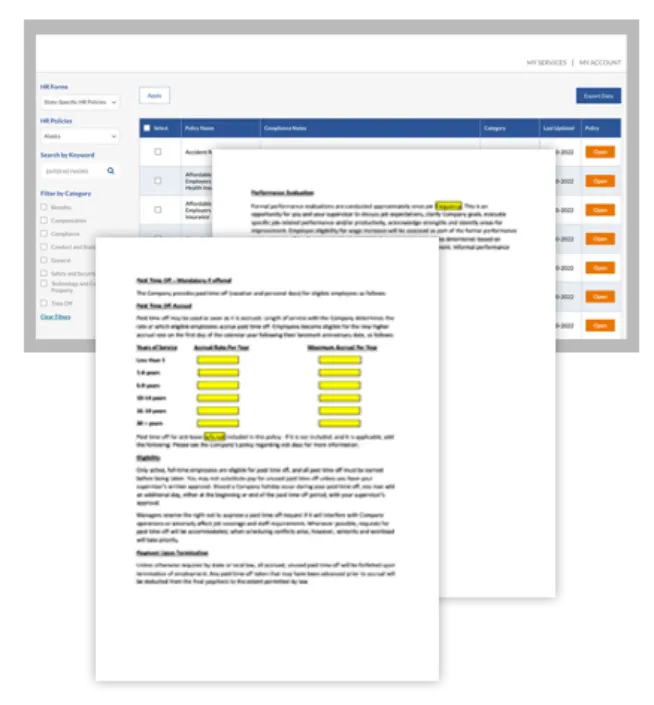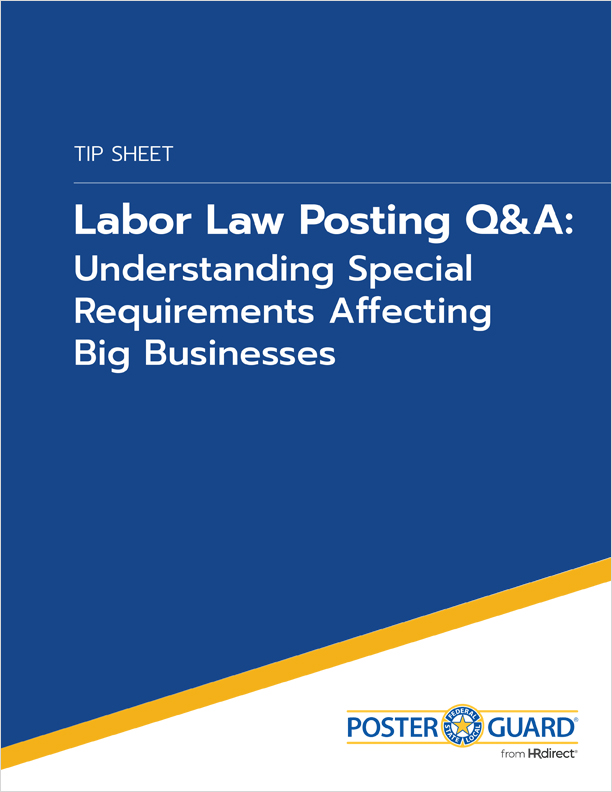Company policies help you set rules and parameters with employees, as well as protect you legally. But too many employers have a “set it and forget it” mentality with their employee handbook, which isn’t smart during these changing times. Beyond the basics, your company policies should reflect trending issues and the latest legal developments. Otherwise, your business will appear out of date and inflexible, particularly at a time when workplace dynamics and employee expectations have shifted dramatically.
Here are 5 workplace policies that deserve your attention in 2024 to keep current with labor law trends and employee needs:
- The CROWN Act and Appearance-Related Protections – Currently, 25 states ban discrimination related to natural hair texture and hairstyles. The CROWN (Creating a Respectful and Open World for Natural Hair) Act recognizes black hairstyles, such as locs, cornrows, twists, braids and Bantu knots, as protected racial characteristics – and prohibits employers from basing hiring and employment decisions on them. To avoid hair discrimination, take a careful look at any grooming policies in your employee handbook and strike any language discouraging natural hairstyles. And to cover any safety concerns related to hairstyles, specify in your policy that you will address the matter through nondiscriminatory measures and may request hairnets, hair ties or other accommodations.
- Diversity, Equity and Inclusion (DEI) in the Workplace – Fostering a culture of diversity, equity and inclusion benefits a company in numerous ways, such as attracting and retaining quality employees, building a stronger corporate culture, boosting employee morale, remaining competitive in today’s marketplace, and garnering greater innovation and problem solving. Every business should have a policy stating they understand the value of diversity, they embrace employee differences, they treat others with dignity and respect, and they take responsible action regarding recruitment and selection, compensation and benefits, development and training, and promotions and transfers. While criticism may be growing on these types of policies, it would be a mistake for employers to pull back on their DEI efforts. Instead, employers should focus on improving their DEI initiatives to ensure they are effective and inclusive. This may involve conducting a DEI audit, providing unconscious bias training, and creating employee resource groups.
- Remote and/or Hybrid Work – Whether a result of the pandemic or to attract and retain strong workers in a tight labor market, many employers now offer remote and/or hybrid work. In fact, it is one of the most desired benefits for job seekers today. To avoid any confusion regarding this arrangement, it’s important to develop a clear policy that specifies eligible positions, addresses scheduling requirements and covers additional topics like available equipment, how productivity is measured and access to tech support.
As a law-abiding employer, you should develop company policies that reflect your priorities (and protect your business) – and review them once a year.
- Paid Leave – A focus on employee protections – specifically more flexibility surrounding illness and family emergencies – is opening the door to new state-level laws. A handful of states have rolled out expanded paid leave benefits, including sick, family, maternity and parental leave. This is an important development because currently, no federal law provides paid sick leave for employees of private employers. Be sure to update your paid time off (PTO) policies to reflect the latest legal developments in your state.
- Employee Wellness and Mental Health – With stress and burnout reaching all-time highs for workers across the country, more businesses are prioritizing employee wellness initiatives. This goes beyond health insurance to include Employer Assistance Programs (EAPs) for counseling services, as well as wellness perks like health screenings, fitness classes and on-site massages. Create a wellness policy in your employee handbook to outline the various services and ongoing support available to employees.
Stay Ahead of the Curve with Up-to-Date Policies
To ensure your company remains compliant with evolving regulations and industry standards, regularly review and update your employee handbook policies. Our State-Specific HR Policies Library provides immediate access to applicable policies, which can be routed electronically, printed, or cut and pasted into an existing handbook.


